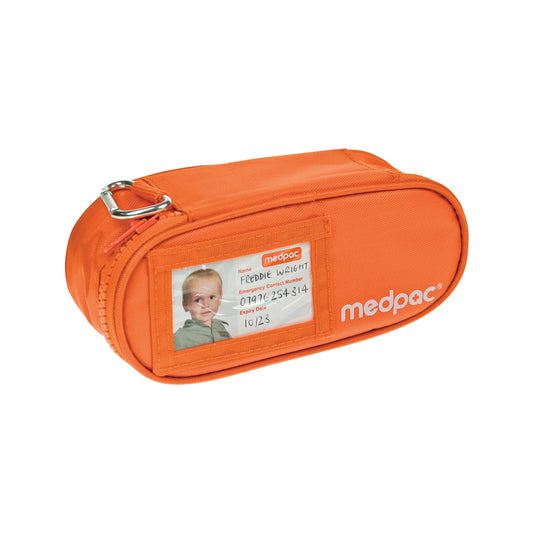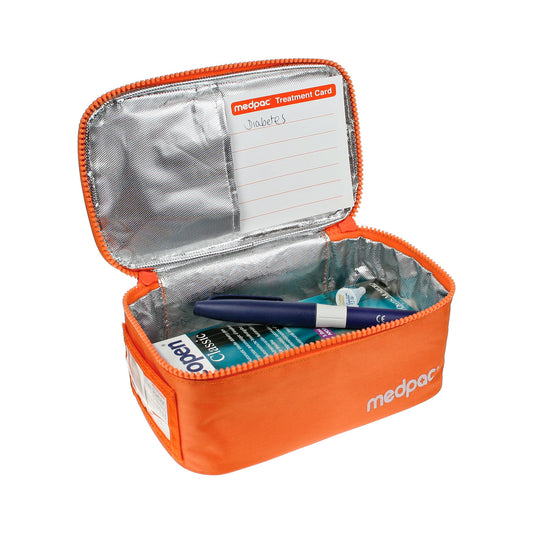
Are you ready to get your wig on? Friday 18th May is Orange Wig Day - an annual campaign where thousands across the UK don their orange wigs to raise awareness and support for individuals affected by anaphylaxis.
Anaphylaxis is an extreme and potentially life-threatening reaction to triggers such as long-standing allergies. If anaphylactic sufferers encounter a substance they are allergic too, it can trigger anaphylactic shock which overtakes a person’s entire body within a matter of minutes.
What is orange wig day?
#OrangeWigDay is one of the most important annual fundraisers for the Anaphylaxis Campaign. The organisation does not receive any government funding at present and depends on the support of its fundraisers and membership programme to maintain its services.
Symptoms of a severe anaphylactic shock
Individuals that experience severe anaphylactic shock will often have trouble swallowing and speaking and experience frequent heart palpitations. Anaphylaxis affects sufferers in different ways and it can also lead to breathing difficulties due to the swelling of the throat or mouth, as well as a sudden fall in blood pressure, resulting in potential collapse or unconsciousness.
There are three types of anaphylactic reaction that sufferers tend to experience:
This type of anaphylactic reaction sees symptoms rapidly onset and get progressively worse. However, once treated, the symptoms soon pass and do not return.
This type of anaphylactic reaction can either be severe or mild, followed by a period where the symptoms ease and then escalate quickly again with blood pressure and breathing issues.
As the name suggests, these anaphylactic shocks tend to last for a number of days and sufferers may require hospitalisation to overcome the reaction.
What is the cause of anaphylaxis?
Anaphylactic shock occurs when the body’s immune system reacts inappropriately in response to its exposure to substances incorrectly viewed as a threat to the body. The immediate release of chemical substances, such as histamine, cause severe bodily reactions. The chemicals put pressure on blood vessels, causing swelling on organs such as the lungs, and can cause a dramatic fall in blood pressure.
How are severe anaphylactic shocks treated?
The most common immediate treatment for severe anaphylactic shocks are injections of adrenaline, also known as epinephrine. These are usually administered using devices known as epipens, which can be stored in many of our Medpacs tailor-made for anaphylaxis sufferers. For instance, the Small Insulated Medpac is capable of storing two Epipens with sufficient space still for asthma inhalers and antihistamines.
Those at most risk of anaphylaxis
Individuals that have experienced severe allergic reactions in the past are likely to experience extreme reactions again in the future. Those who experience severe reactions to even the tiniest doses will need treatment on hand in case of exposure to larger doses. Asthma sufferers are particularly at risk, as asthma can be severely affected in the midst of anaphylactic shocks.
Ultimately, any individual who believes they suffer from an allergy should seek advice from their GP.
The prevalence of allergies nationwide
According to Medpac founder, Jayne Tarrant, there is a worrying “increase in allergy sufferers nationally, specifically in children”.
“Luckily, some children grow out of their allergies, but it is a very concerning time for parents that have to deal with these potentially life-threatening situations,” she added.
“I myself suffered from anaphylaxis in my teens and early twenties from an unknown cause and was regularly hospitalised. It is a frightening situation to be in but often even worse for onlookers which may be friends or colleagues that want to help.
“Awareness of anaphylaxis is therefore essential to help people know what to do and when to do it. This is added by being able to quickly find the sufferer’s epipen, which is another reason that developing Medpac was so important to me.”
Jayne cites a worrying experience one Christmas Day to highlight just how fragile allergy sufferers’ immune systems are.
“We need to make people aware of the difference between allergies and fussy eaters,” Jayne insisted.
“My godson spent Christmas Day in hospital when he was two years old because someone who had eaten peanuts gave him a kiss. This is certainly not a fussy eater.”
As far as allergy ‘hacks’ go, Jayne believes Medpac products can go a long way towards helping individuals prepare for life with allergies.
“Carry a Medpac with your photograph on and a visible Treatment Card detailing the essential information needed for your specific condition.
“Wear a Medpac Wristband to highlight your allergy and make sure friends, colleagues and family members are fully aware – every second counts!”
The Anaphylaxis Campaign is making a real difference in schools and everyday life. The organisation successfully amended legislation to allow life-saving adrenaline in all UK state schools and is continuing to raise awareness of the challenges adults face living with allergies.
Get involved with #OrangeWigDay and do your bit to protect those at risk of severe allergies!





